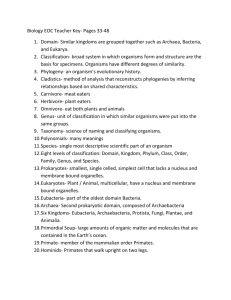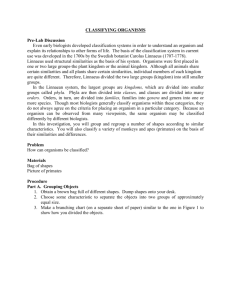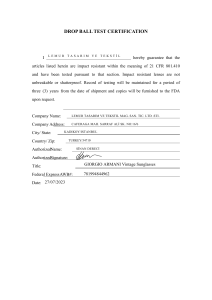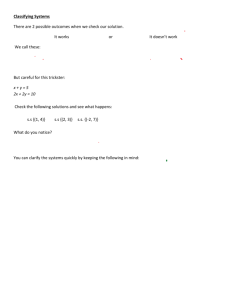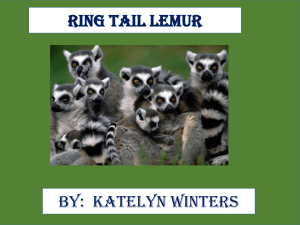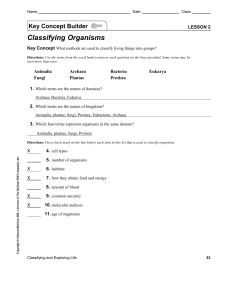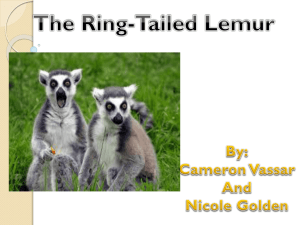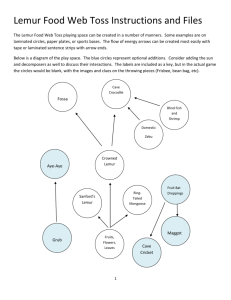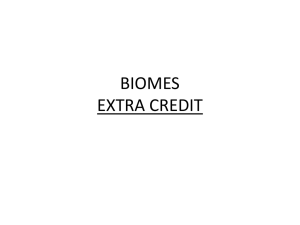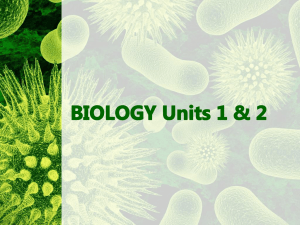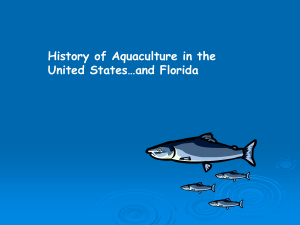Primate Classification
advertisement
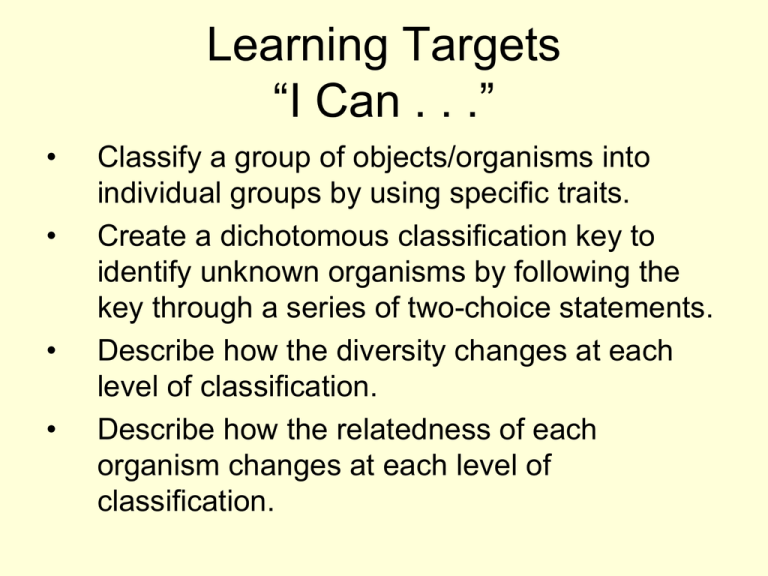
Learning Targets “I Can . . .” • • • • Classify a group of objects/organisms into individual groups by using specific traits. Create a dichotomous classification key to identify unknown organisms by following the key through a series of two-choice statements. Describe how the diversity changes at each level of classification. Describe how the relatedness of each organism changes at each level of classification. All Candy Classifying Organisms Primates All Primates (1)Mouse Lemur (2)Fat-tailed Lemur (3)Fork-marked Lemur (4)Squirrel Monkey (5)Aye-Aye (6)Marmoset (7)Ring-tailed Lemur (8)Proboscis Monkey (9)Baboon (10)Chimpanzee (11)Gorilla (12)Orangutan Fish Anatomy 1. Northern Pike 2. Yellow Perch 3. White Sucker 4. Walleyed Pike 5. Blue Catfish 6. Rock Bass 7. Carp 8. Smallmouth Bass 9. Largemouth Bass 10. Eel 11. Rainbow Trout 12. Channel Catfish 13. Pickerel 14. Bluegill 15. Bullhead Catfish 16. Brook Trout 17. White Crappie 18. Atlantic Salmon Analysis 1. How is this investigation similar to the way in which biologists classify organisms? 2.What characteristics did you find most useful for classifying the primates? 3.Why should terms like tall, short, or small be avoided when describing traits of organisms? 4.Trees are usually identified by the characteristics of their leaves. Suggest two ways in which trees could be identified during winter when they have no leaves. 5.Suppose you wanted to identify and classify all birds that came to a particular feeder during a spring day. What are some common characteristics you would use in classifying the birds?
